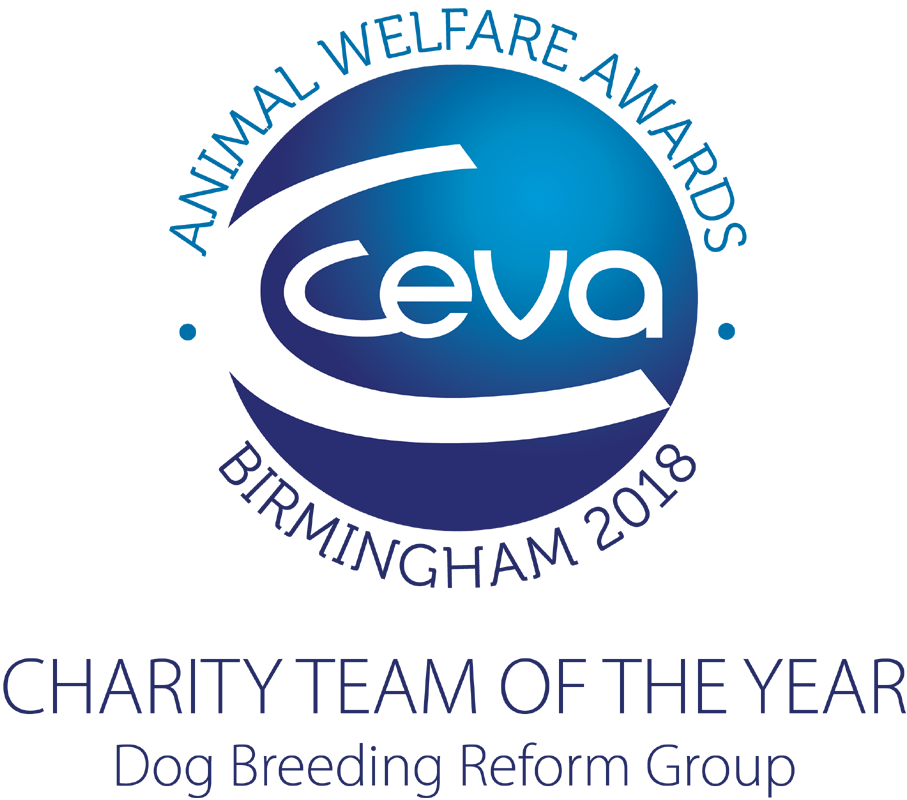Notes of Meeting 1 December 2015
Members Present: Dan O’Neill (DON), Chris Laurence (CL), David Grimsell (DG), Julia Charlton (JC), Stephen Charlton (SC), Carol Fowler (CF), Fiona Cooke (FC), Lesley Field (LF) Charlotte Mackaness (CM), Margaret Carter (MC), Gudrun Ravetz (GR), Vicki Betton (PDSA)
Apologies: Julia Carr, Tania Ledger, Marisa Heath, Clare Rusbridge
Invitees present: Vanessa Nice-Amoroso (IFAW)
Apologies: Julia Carr, Tania Ledger, Marisa Heath, Clare Rusbridge
Invitees present: Vanessa Nice-Amoroso (IFAW)
1. Matters Arising
2. Update on Charity Status
CL had looked at indemnity insurance and obtained a variety of estimates from £140 - £600. We agreed that indemnity insurance was necessary. CL will organise.
We have adopted the constitution of a charitable trust, and operate as an unregistered charity. We would require an annual turnover of £5,000 to register with the Charity Commission. Every member therefore needs to think of ways to raise funds. CL suggested we approach one of the well-known fund raising charities like Margaret Gibson Trust or Jean Sainsbury Animal Welfare Trust and ask for a donation of £5,000. CL will investigate and see what the parameters are. Alternatively we go to the welfare organisations to ask for some funds. To do this we would need to show that we perform a different function from other groups such as the Canine and Feline Sector Group (CFSG). CFSG has a significant industry representation where DBRG represents ordinary dog owners and dog lovers and the dogs themselves. We also focus solely on the breeding issues, in particular those relating to breed related health and welfare and the associated conformation welfare issues. We noted that this was where the focus lay in 2008 with the BBC documentary film, ‘Pedigree Dogs Exposed’ and we would like to ensure that this emphasis remains high on the agenda of dog welfare issues. 3. DBRG Objectives and Changes in the Legal Status of Dogs in France
The likely change of the legal status of dogs in France from the ‘property’ of their owners to ‘sentient beings’ deserving of protection in their own right, raised the question of whether this change should be reflected in DBRG’s Objectives. A long discussion ensued in which it was agreed that in many ways it would be desirable to change the legal status of dogs in this way but the unforeseen consequences might be that owners could find it easier to abdicate their responsibility. Any such change would need to be accompanied by additional legislative clarification to ensure that dog owners remained responsible for their animals’ welfare. As a long term goal, we felt that the idea of sentience should be promoted at every opportunity and that Defra animal welfare officials and ministers should be made aware of the changes in France.
4. DBRG Position Papers (DG)
DG suggested that we should periodically produce position papers on certain specific health/welfare issues by outlining the issue and making recommendations about the way it should be tackled. These could be published on the DBRG website, form the basis for briefing for politicians and/or be submitted for publication in the dog press. A paper would have one main author but be reviewed by other DBRG members before publication. Further information may be provided by linking to other sites, for example the BVA/KC Health Schemes. Position papers should be supported by evidence and kept up to date. We would clarify our viewpoint on specific topics relevant to dog health and welfare. Our audience may be the general public; politicians; those associated with the dog breeding industry; dog welfare organisations. It was agreed in principle that we should go ahead with producing position papers on key topics. Action: a preliminary list of topics should be drawn up and the first paper and author agreed on.
DBRG Strategy (DG) DG defined strategy as converting objectives to outcomes. It was agreed that there was value in clarifying how we may achieve our objectives so that there was a common understanding among members. We have the potential to influence other bodies and need to identify those objectives where our influence is most likely to be successful. We discussed the Puppy Contract and Standard for Breeding in this context. Years of negotiations between the BVA AWF/ RSPCA and KC have still not achieved an agreed Puppy Contract. Years of negotiations between the KC, the Dog Advisory Council and others have still not produced total agreement on a single accepted Standard for Breeding. The point was made that in the meantime DBRG will promote the BVA AWF / RSPCA Puppy Contract and the Dog Advisory Council’s Standard for Breeding. The BVA AWF/RSPCA Puppy Contract has been downloaded many thousands of times by potential puppy buyers and has been used and promoted by the Cockapoo Club of GB since its publication. It was suggested that we should ask the Kennel Club what the current hold up was on achieving an agreed Standard for Breeding and Puppy Contract. Our strategy for the above therefore is:
|
5. DBRG Leaflet (New Version)
Draft copies of pages 1 and 2 of the new leaflet were distributed and discussed in detail. It was agreed that further work needed to be done in the next few weeks via email. Regarding online references to information on breed related genetic health there was agreement on three online resources: Dog Breed Health; Universities Federation for Animal Welfare (UFAW) Information on Breed Health; University of Cambridge Vet School Inherited Diseases in Dogs database.
Detailed discussion followed on the Dog Breed Health breed page template with a view to how it could be improved. It was suggested that the sub heading, Other diseases should be changed to, Other diseases reported and that in the absence of prevalence data the diseases should be listed in alphabetical order. SC suggested that diseases should be highlighted based on its welfare impact on the individual dog. When the website was created in 2011 there was some opposition from Kennel Club officials and breed clubs. It was suggested that breed clubs might be more willing to collaborate now and could be particularly helpful in ranking those diseases which have the biggest welfare impact and/or be most widespread. However, approaches to the KC and/or breed clubs might also be problematic based on past experience. Problems to be overcome are those of cost, if changes were to be done by a technician, and time if done manually by CF. There was agreement that DogBreedHealth was a useful resource for potential puppy buyers who might be in the process of choosing a suitable breed. It was also useful in its provision of other information, such as the Puppy Contract, the Standard for Breeding, the KC’s Assured Breeders Scheme, available health tests, and questions to ask a breeder. 6. Cockapoo Club GB (CCJB) Approved Breeder Scheme (JC)Julia outlined the history of the Cockapoo Club’s Approved Breeders Scheme. The CCGB founders realised that as the Cockapoo gained in popularity, inexperienced and unethical breeders would jump on the band wagon motivated by profit. They realised that although the Cockapoo was not a breed, and often looked quite different from each other, the Club should try to ensure good welfare regarding the dogs used for breeding and their offspring. It should also be responsible for educating puppy buyers. A seminar at Wood Green Animal Shelter provided expert advice on how to set up an inspection scheme. An introduction to Emotional Mood Reinforcement Assessment (EMRA) (understanding a dog’s basic emotional needs, both general and specific to different types of dog) was included in the programme.
The CCGB Approved Breeder Scheme was then developed with a guiding principle of openness and transparency and the moral obligation of Approved Breeders to put the health and welfare of their breeding dogs and their offspring first and foremost . The Scheme requires breeders to carry out the necessary health screening/testing before breeding; provides a questionnaire and mentoring for new breeders; gives advice to prospective puppy buyers; requires the use of the RSPCA/BVA AWF Puppy Contract and PIP; requires short notice inspections prior to approval. The cost of an inspection is borne by the breeder (£75) plus an annual fee of £20. In return the breeders are provided with a market, as shown by the online visits to the CCGB Approved Breeder website. The Scheme is supported by an Inspectors Manual and Breeder Approval Inspection Form. A Code of Ethics is applied to police the Scheme and action taken, in the form of a visit from a trained inspector, in the case of a complaint against a breeder. Where necessary, breeders are removed from the Scheme and may only return to it after going through the whole application process again. Discussion included the stigma attached to commercial breeders who many puppy buyers dismiss as ‘puppy farmers,’ some of whom have very high standards of welfare. To overcome this, the public needs to be made aware that ‘commercial’ does not necessarily mean poor welfare. Such breeders need to be transparent about their breeding, allow short notice visits, and perhaps make use of short circuit TV to show the dogs’ wider environment, living quarters, sleeping arrangements, social interaction, puppies with their mothers, and environmental enrichment. A National Scheme for all Breeders There was enthusiasm from the DBRG group for a National Scheme for all dog breeders, both pedigree and mixed breed based on a model that has been shown to work. This Scheme would need to be UKAS approved. The National Dog Breeding Inspection Scheme would be the Gold Standard for breeders. Its basis would be the Dog Advisory Council’s Standard for Breeders; the CCGB Scheme; the Chartered Institute of Environmental Health’s (CIEH) Model Licence Conditions and Guidance for Dog Breeding Establishments; the RSPCA/BVA AWF Puppy Contract and Puppy Information Pack (PIP); Wood Green Animal Shelter’s Emotional Mood Reinforcement Assessment (EMRA) Action: a working group comprising Julia Charlton, Fiona Cooke, Chris Laurence, Stephen Charlton, David Grimsell will present an early outline of the Scheme at the next DBRG meeting in March 2016. Advice from UKAS would also be sought. 7. Appointing a Press/Social Media Officer
Charlotte Mackanness (former journalist) agreed to take on this role assisted where necessary by Margaret Carter. CM suggested that we need to be ready to provide press statements for issues that may be coming up. VB will alert us to some of those issues relating to dog breeding where appropriate.
CM updated the group on the Cavalier Petition (calling for the Kennel Club to refuse to register Cavalier puppies from parents whose parents had not been screened for Heart Disease (MVD) (Cavalier Club Scheme) and Chiari Malformation/Syringomyelia (CMSM) (official BVA/KC Scheme). The KC have said they will meet with the Danish KC who have mandatory health testing for MVD and that the official BVA/KC Heart Scheme is on its way. MC reported that when the Companion Cavalier Club was set up, the KC refused to recognise it but gave an assurance that the Companion Club would be consulted on health matters. This has not happened. It was agreed that engagement with the Kennel Club over this and other issues was important. CF pointed out that Notes of all DBRG meetings are sent to the KC’s Breed Health and Science team, Bill Lambert, Aimee Llewellyn and Tom Lewis. |
Dates of Next Meetings 2016
Meetings during 2016 will be held at the British Veterinary Association (BVA) 7 Mansfield Street, London W1G 9NQ, 2.00 – 5.00pm
Thursday 3 March, Thursday 9 June, Thursday 8 September, Thursday 1 December
Thursday 3 March, Thursday 9 June, Thursday 8 September, Thursday 1 December






